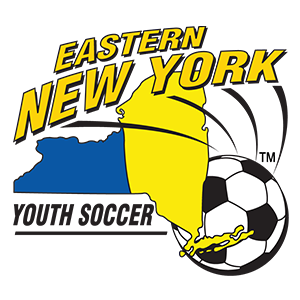By Tim Bradbury, Director of Coaching Instruction
I am increasingly concerned with some of the trends in youth Soccer. My concern grows deeper when these trends directly conflict with much of the great information being given out by US Youth Soccer, the USSF and the NSCAA. The number of competitive games in ratio to the number of training sessions in any given season being one example where the experts say one thing yet Leagues, Club’s and teams feel compelled to do the other. I have lost track of the number of times I have been told, "we are doing this so we don’t lose kids to the League/Club/Team next door". This statement quickly leads to the customer/parent is always right discussion. Well I hate to break it to you but truth be told they are not.
As a teacher, coach and educator with many years of experience I have been placed in many situations where the customer or parent has shared with me there thoughts on both what I should be teaching and how I should be teaching it. Throughout these discussions the passion used to justify their point of view has always been primarily based on three major points
- The customer is always right.
- I have been to school, played the sport and therefore have a great expertise in it as well.
- We have always done it this way.
Customer is Always Right
I believe that all of the above statements have major flaws within them. If we examine the "customer is always right" statement first. It seems historically the statement can be traced to the owner of Selfridge’s department store. Although I can see some merit to the statement in terms of a walk in purchase at a store. I believe there are fundamental issues when it is applied to a professional providing customer service within education or a sport.
I believe the customer is typically wrong within the education and coaching environment if the service they demand causes or leads to any of the following:
- Developmentally inappropriate material being presented.
- Great distress for the educators asked to present the material.
- Discomfort, boredom or sadness for the players/pupils participating.
- The chance that future learning may be negatively impacted by the demands being made. The teaching to the test syndrome. Specifically in soccer terms the danger that a tryout plagued with stationary technical testing may lead to sessions full of the same being taught as test preparation time.
I have been to school, played the sport and therefore have a great expertise in it as well.
There has been so much publicity recently regarding the 10,000 hour rule and Coyle’s, "The Talent code" and most people now have a much clearer understanding of what is required both to master a skill and develop a level of expertise.
"Becoming an expert in almost anything requires literally years of work. People will do this only if they have some initial success, enjoy the work, and are supported by the social climate. Expertise is not solely a cognitive affair." ~ Earl Hunt
Nor is it the result of attending course after course; it would seem, the only way to obtain expertise, is to put in the hours. If it were that simple, however, every man and his dog who has put in some solid hours down their local club would be bordering on expert status. What is the reason some make the top and some don’t in coaching?
In the last 22 years in the US I have watched, I am sure ,more than 10,000 hours of Basketball despite this being true I am absolutely sure that I am not a Basketball expert. Similarly I have been sick way to many times and the subsequent hours in the Doctors office must indeed make the 10,000 hours look minuscule. I still resist the urge to tell my Doctor what they should diagnose me with.
So what is true expertise derived from, I tend to believe as stated below that true expertise is gleaned from the 10,000 hours of initial experience combined with hundreds of hours or years of formal education and 1000’s of hours of reflective practice.
"Reflection, or reflective practice is a term bandied about, but what is it exactly? Well, what it is not, as Chris Cushion says, is casual speculation, description or mere evaluation. So, for instance, the FA’s session evaluation form is not considered reflective practice; it is simply an evaluation form and the amount of improvement that can be made using it is limited.
Reflective practice is much deeper than this; rather than saying what happened and what could be changed, it is largely about ‘why’ something happened. So, you had a nightmare session? Why was it a nightmare session? Why were the kids being disruptive? What was it about the session they didn’t’t enjoy? Why didn’t’t they enjoy it? How am I delivering my messages?"
I was tempted to just ignore
We have always done it this way.
Please consider evolution in medical care, engineering, education or any field that concerns you and imagine how it would be if things were still the same as 100 or 200 years ago because innovators had not looked to pioneer change, challenge standards and make things better.
Youth Soccer is at a crossroads with many dilemma’s ahead both at a National and Local level. I would advise as many Leagues, Club’s and State Associations as possible to find the time to unearth an expert in Soccer as they approach the minefield ahead. What would be unique and somewhat special would be if people then take the time to listen to what your expert has to say.

